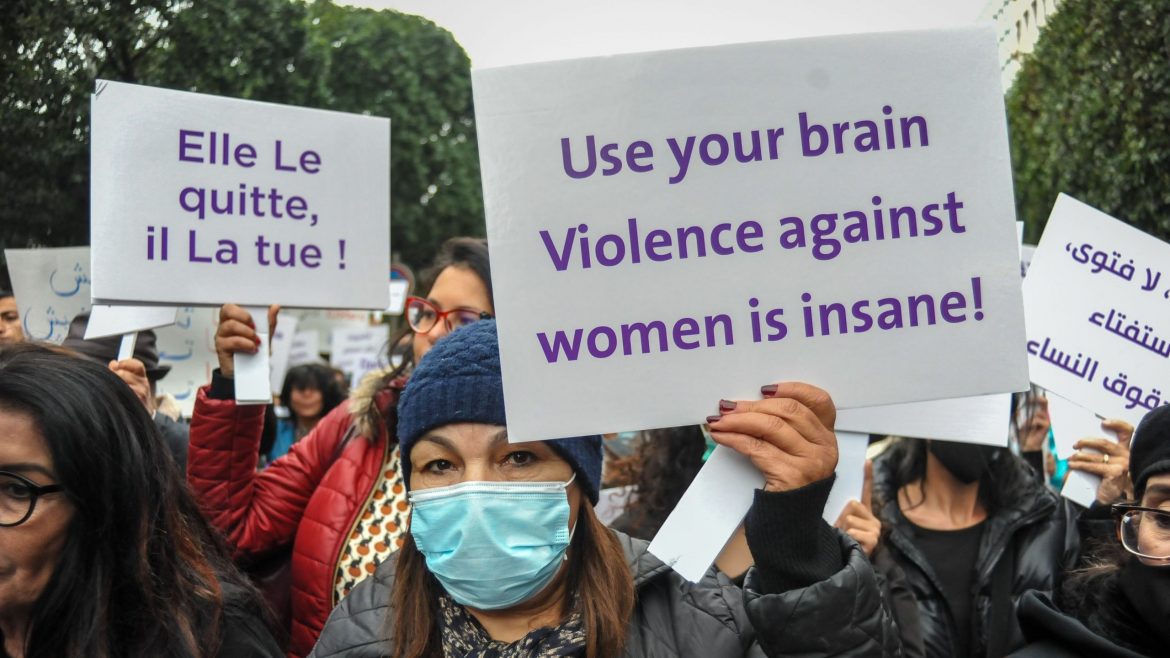Kingston Council teamed up with other Southwest London councils in an online event about gender based violence, which was streamed on YouTube on December 9.
The morning event began with an introduction by local detective superintendent Andy Wadey, who leads the public protection teams for Southwest London Police. He said he wanted a society where women were not abused by men.
Independent sexual violence advisor with the women and girls network Eleanor Porter said: “Our goal is always to promote, preserve, and restore the mental health and well-being of women and girls to empower them to make a total and sustainable recovery from their experiences of violence.”
Women and girls network was founded in 1987, supporting women and girls in London affected by gender based violence. This includes childhood sexual abuse, domestic violence, rape, trafficking, sexual exploitation, female genital mutilation, so called honour based violence, and forced marriage.
The women and girls network also provides support for people who identify as LGBTQIA+ such as transgender women and those who identify as non-binary.
The Crime Survey for England and Wales (CSEW) 2020 said 773,000 adults aged 16 to 74 years had become victims of sexual assault (including attempts) in March 2020. There was four times the amount of female victims (618,000) compared to male victims (155,000).
The CSEW findings showed that fewer than one in six (16 percent) female victims and fewer than one in five (19 per cent) male victims aged 16 to 59 reported what had happened to them to the police, after experiencing years of sexual assault by rape or penetration since the age of 16.
At least 5.5 per cent of adults aged 16 to 74 (2.3 million) were said to have experienced domestic abuse.
Senior violence against women and girls operations manager Emma Merrick said domestic abuse could be psychological, physical, emotional, sexual, financial or based on so called honour or harmful principles.
She said there has been a rise in tech abuse. Merrick said: “Perpetrators hacking into victim survivors phones, having passwords, monitoring calls and [social media] messages, the list goes on.”
Kingston service manager for the domestic violence advocacy outreach service Felicity Johnson said: “On average it takes about 35 instances of abuse before they are ready to even disclose that and a lot of that is how we as a society sort of present ourselves to these victims.”
The outreach service has been supporting over 6,000 women and children in recovery from sexual abuse. The service also discourages victim-blaming language that can effect survivors’ confidence.
“When we as a society use language which is even hinting at some that victim blaming language we’re actually mimicking what perpetrators will do within these contracts,” said Johnson.
Metropolitan Police Detective, Jen, has worked in domestic abuse investigations as a specialist officer. She has spent the last two years working on Clare’s law.
The 2014 Domestic Violence Disclosure scheme (Clare’s law) was named after Clare Wood who was murdered by her ex-boyfriend George Appleton in 2009. He had an unknown history of domestic abuse. She reported numerous incidents to the police to no avail after she ended the relationship.
Jen said: “[Clare’s law] does not introduce new disclosure powers but utilizes the police’s existing common law powers – prevention of crime ensuring compliance with ECHR and data protection.”
There are a number of reasons for a right to ask or right to know disclosure application. This includes seeing red flags in a relationship, abuse, or hearing something worrying about their partner.
Applications can be made online, at a police station or by calling 101. The requests allow for someone to state a safest time and method to contact them.
Jen said: “We try to review all applications within 24 hours in order to assess if there’s an immediate risk.”
A Domestic Abuse Bill 2020 factsheet on the domestic violence disclosure scheme reported at least 8,591 right to ask applications made, where 449, (52%) lead to a disclosure. 11, 556 right to know applications were made with 4,236 (37%) applications resulted in disclosures.
Wadey said there is more focus on increased patrols, ‘walk and talk’ where female officers walk with people on their travels, and the night time economy.
Wadey said he wants a continued partnership between the police and local services and businesses to support women and girls and deter offences from happening.
“[This] will all help reduce the impact of violence on women and girls, and have better ways of detecting and bringing preparators to justice.”





